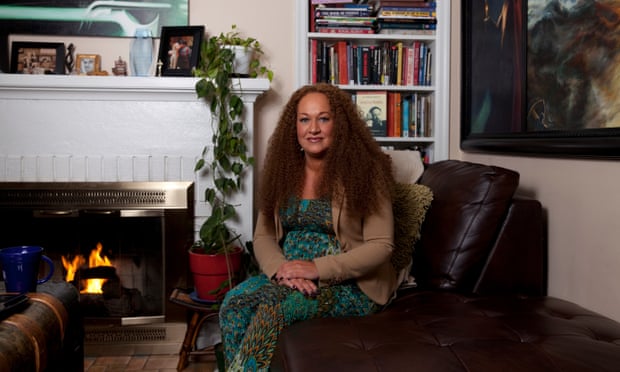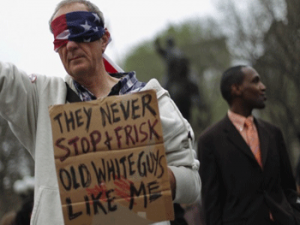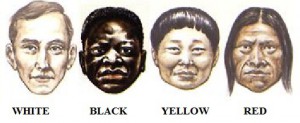Tag: Race
US Educators Racist?
School-To-Prison Pipeline Targeted By Arne Duncan Often A Diversity, Training Problem

“When a kid’s not understood, not guided, not taught, they call the police on them…the whole educational system has to change.”
Rachel Dolezal: ‘I wasn’t identifying as black to upset people. I was being me’

She became a global hate figure this year when she was outed as a ‘race faker’. Here, she talks about her puritanical Christian upbringing, the backlash that left her surviving on food stamps – and why she would still do the same again
Click Here to read more.
Report: Black, Latino Students Disproportionately Disciplined In Mass. Schools

Click here to read about the report.
Black And Blue: Police And Minorities
a 2006 NPR podcast about race relations and law enforcement.
“The arrest of Harvard professor Henry Louis Gates, Jr., revived the ongoing discussion about tensions between police officers and non-white Americans. John Burris, a lawyer who represented Rodney King, joins Portland, Ore., Police Chief Rosie Sizer and Montgomery County, Md., Police Chief Clarence Edwards to discuss what happens when black and blue collide.”
A Conversation With Black Women on Race

Click Here to watch a short documentary in which black women talk about the challenges they face in society.
This latest installment of the NYTimes “Conversation on Race” Op-Doc video series highlights the negative emotional impact of racist attitudes on black women’s lives. Everyone we reached out to for this project was eager to tell her most intimate stories of pain and discrimination, from childhood, to work, to profiling by the police. We hope that in sharing them, we are helping to complicate the public representations of black women and girls — highlighting the unique challenges they face, as well as experiences and feelings that are universal.
From Harriet Tubman to Ida B. Wells to Dorothy Height, black women have been heavy presences in social justice movements throughout history. However, issues particular to these women are often relegated to secondary status in our collective consciousness. This seems to be changing. Recent events in Texas, Baltimore and Missouri show that black women are again in leadership roles, and are speaking out against the mistreatment they regularly experience. But in our nation’s current movement for social justice, women’s voices need a louder bullhorn. Conversations like the one we’re hoping to start with this Op-Doc are a first step to understanding, and to changing.
See below to watch the other installments of this Op-Docs series:
“A Conversation With Police on Race”
“A Conversation With My Black Son”
The Black Family in the Age of Mass Incarceration
American politicians are now eager to disown a failed criminal-justice system that’s left the U.S. with the largest incarcerated population in the world. But they’ve failed to reckon with history. Fifty years after Daniel Patrick Moynihan’s report “The Negro Family” tragically helped create this system, it’s time to reclaim his original intent.
VIDEO: Key Points for Effective Racial Dialogue
Prison sentences are getting shorter. But racial disparities are getting worse.
/cdn0.vox-cdn.com/uploads/chorus_image/image/47510833/53460365.0.0.jpg)
A new study conducted after a 2005 Supreme Court decision gave judges more flexibility in sentencing suggests that this newfound judicial discretion is being used to help white defendants more than black ones. Judges determines a prison sentence by consulting a set of federal guidelines which provides a recommended range of term length based on factors like the offense and the defendant’s criminal history. The study shows that given the same recommended sentence on almost any crime, white offenders receive a shorter punishment than black offenders — a disparity that has grown since 2005.
This creates an unfortunate double bind for those who aspire for equality in the criminal justice system: When judges are given more power in setting sentences, people are punished differently for the same crimes. When judges lack that power, everyone is treated harshly in court, especially the black Americans who already experience racial bias in the justice system through disproportionately more arrests and criminal charges.
Click here to read more.
Questions
What are some contributing factors for this disproportionate amount of arrests, charges, and lengthy convictions for black Americans?
Is there a foreseeable solution for this problem of racial bias in our criminal justice system?
Do you think that judges should have more or less freedom in sentencing? Why?
In ‘Citizen,’ Poet Strips Bare The Realities Of Everyday Racism
African-American poet Claudia Rankine’s latest collection, Citizen: An American Lyric is a personal meditation on race in America with a cover that recalls Trayvon Martin — a black hoodie against a white background.
Citizen was a finalist for the 2014 National Book Award. The book reads like a series of diary entries about encounters with racism. Here’s one of the book’s anecdotes:
You and your partner go to see the film The House We Live In. You ask a friend to pick up your child from school. On your way home your phone rings. Your neighbor tells you he is standing at his window watching a menacing black guy casing both your homes. The guy is walking back and forth talking to himself and seems disturbed.
You tell your neighbor that your friend, whom he has met, is babysitting. He says, no, it’s not him. He’s met your friend and this isn’t that nice young man. Anyway, he wants you to know, he’s called the police.
Your partner calls your friend and asks him if there’s a guy walking back and forth in front of your home. Your friend says that if anyone were outside he would see him because he is standing outside. You hear the sirens through the speakerphone.


